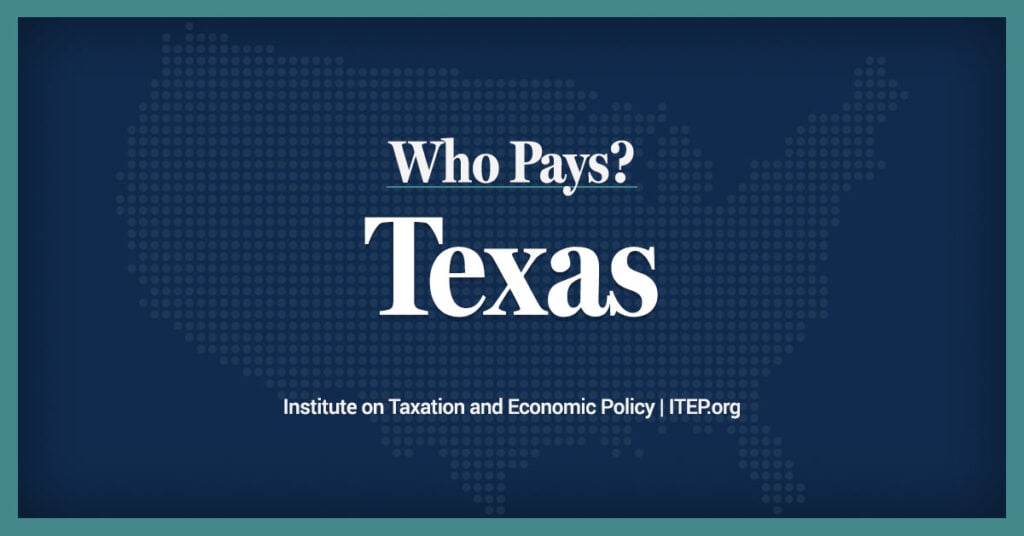While gubernatorial, mayoral, and redistricting elections gained most of the attention, important state and local tax measures were also on the ballot this week. Though ballots continue to be counted nationwide, one thing is clear: many voters support new state and local spending to support critical services in their communities.
Statewide Ballots
Two states, Colorado and Texas, held statewide tax referenda with very different results.
In Colorado, two ballot measures to boost funding for free school meals passed handily. Propositions LL and MM retained tax dollars already collected and levied an additional $95 million by limiting tax deductions for individuals making over $300,000 annually. The Healthy School Meals for All program provides free breakfast and lunch to all public school students in Colorado. Any excess funds will be directed to the state’s SNAP program.
Voters in Texas approved all of the anti-tax constitutional amendments presented to them. At the same time, they also supported investing in water quality, dementia research, and higher education.
Texas voters approved prohibitions on inheritance taxes, capital gains taxes, and certain taxes on financial service providers like stock exchanges and broker dealers. The state already lacks a personal income tax, which is a key driver of its regressive tax system. Constitutionally prohibiting these taxes adds additional barriers if future Texans want a more fair tax code.
Lone Star State legislators also put a variety of property tax exemptions on the ballot, including homestead and business personal property tax exemptions. While homestead exemptions can be a way to reduce property taxes on homeowners, extending these exemptions into hundreds of thousands of dollars of value gives tax cuts to wealthier homeowners instead of targeting those least able to pay. These exemptions will cut into local government budgets, especially school districts, and it is unclear how the state wants localities to fill in the gaps.
Texas voters also approved three amendments that require more investment from the state. Texas State Technical College will create an endowment to expand their educational footprint statewide. Voters approved up to $1 billion in sales tax receipts going to the Texas Water Fund to improve water infrastructure and water quality statewide. The state will also provide $3 billion to the Dementia Prevention and Research Institute of Texas. Though none of these came with new revenues attached, it shows that Texas voters want to invest in their communities – so long as someone else pays for it.
Local Ballots
Thousands of communities held property, sales, and income tax elections on Tuesday. In a few major cities and counties, voters approved massive investments in communities and services.
- In Mecklenburg County, North Carolina, voters approved a new 1 percent sales tax to support transit and road investments in and around Charlotte. This will raise an estimated $19 billion over 30 years.
- Denver voters approved Vibrant Denver, a group of five interrelated ballot referenda that will allow the city to sell $950 million in bonds to support new parks and recreation centers, road and pedestrian improvements, senior services, library maintenance, the Denver Zoo, public art and museums, and new affordable housing development.
- Santa Clara County, California voters appear to have approved a sales tax increase to support low-income health care, generating an estimated $330 million annually. The measure was put on the ballot following the new federal law’s cuts to Medicaid.
- Voters in Santa Cruz County, California weighed two competing real estate transfer tax and parcel tax proposals to support affordable housing. Voters approved a plan for a higher parcel tax and progressive real estate transfer tax supported by the county council, which will generate $4.5 million per year. However, voters wisely rejected a smaller amount of money – only $1.1 million annually – supported by the National Association of Realtors.
- Portland voters approved a 75 percent increase in the park district property tax levy, avoiding cuts of up to 50 percent of park services in their city.
- A rewritten business tax in Seattle will cut taxes on small businesses and pay for it with a slight increase on large businesses.
Following chaos around property tax assessments and notices in Jackson County, Missouri, voters overwhelmingly approved of switching to an elected assessor. Currently, the county executive appoints an assessor. This will have Jackson County on the same system as the rest of Missouri.
And two localities in Texas had important but unfortunate ballot results. Voters in Austin rejected a 20 percent property tax hike, as residents in that city continue to be frustrated with high property taxes. In addition, voters supported a pair of Bexar County referenda that will raise county hotel and rental car taxes for two arena projects. Proposition B, supporting the development of a new stadium for the San Antonio Spurs, will cost the county over $311 million. Next year, voters in San Antonio will vote on an additional $489 million to support the Spurs project.
People want to invest in their communities
Voters across the country value the public services, goods, and investments that states and localities provide. Mayoral and gubernatorial elections focused on affordability as a key value, with New York mayor-elect Zohran Mamdani pushing for free buses and universal child care and Detroit mayor-elect Mary Sheffield pledging comprehensive property tax reforms. Making the choice to invest in transit, public parks, affordable housing, and health care shows that voters value what they gain from paying for public services with public money.





